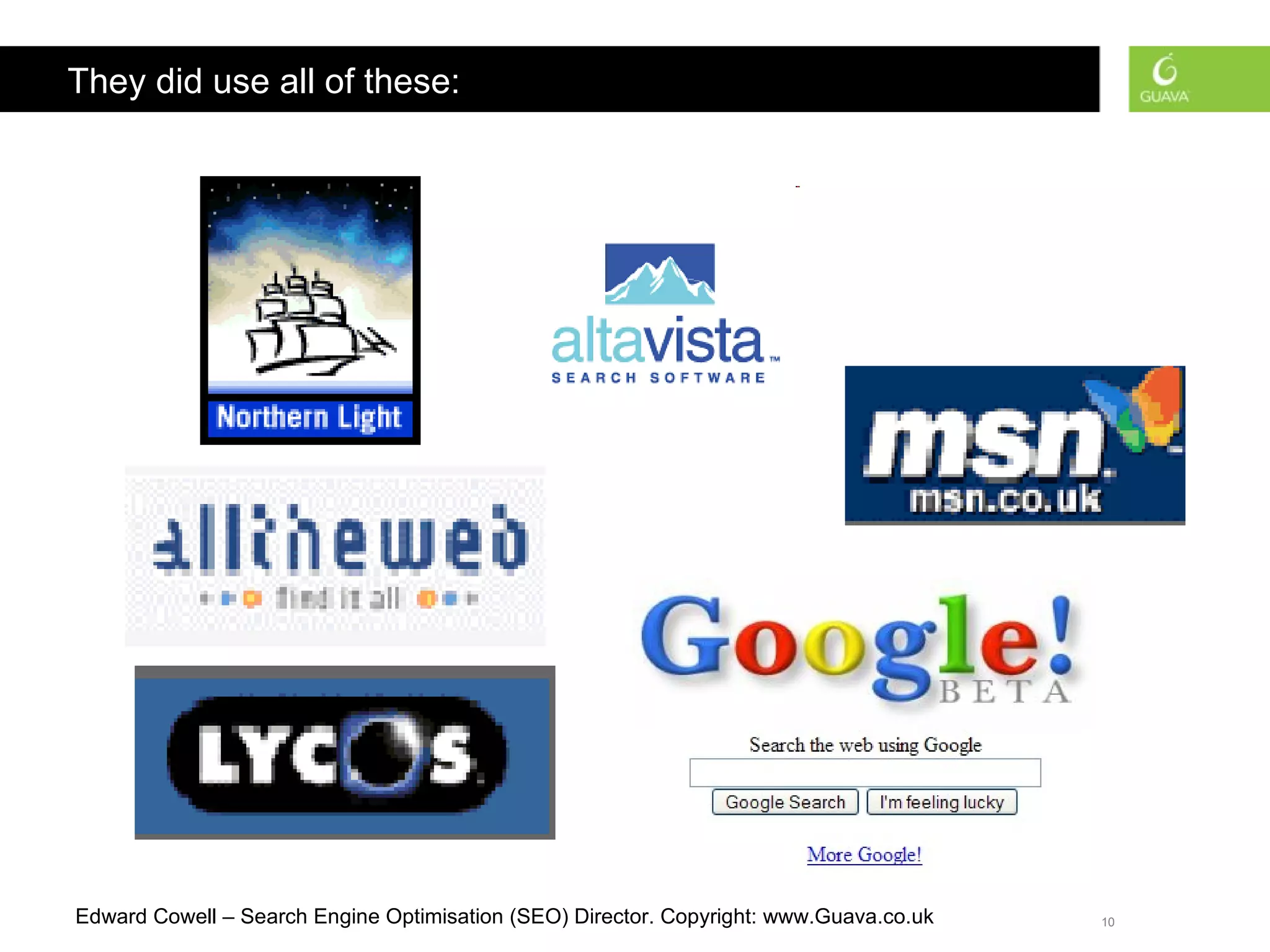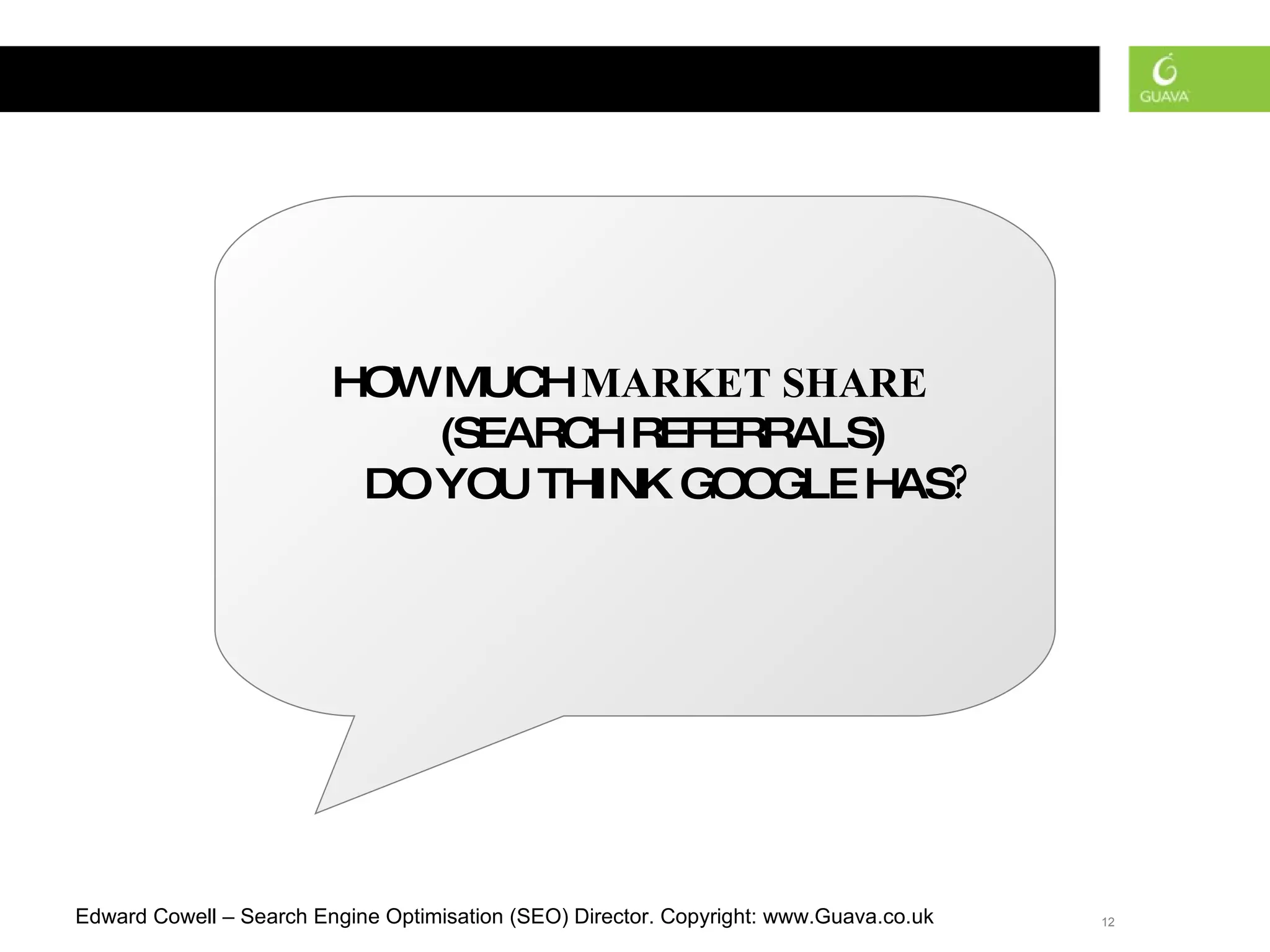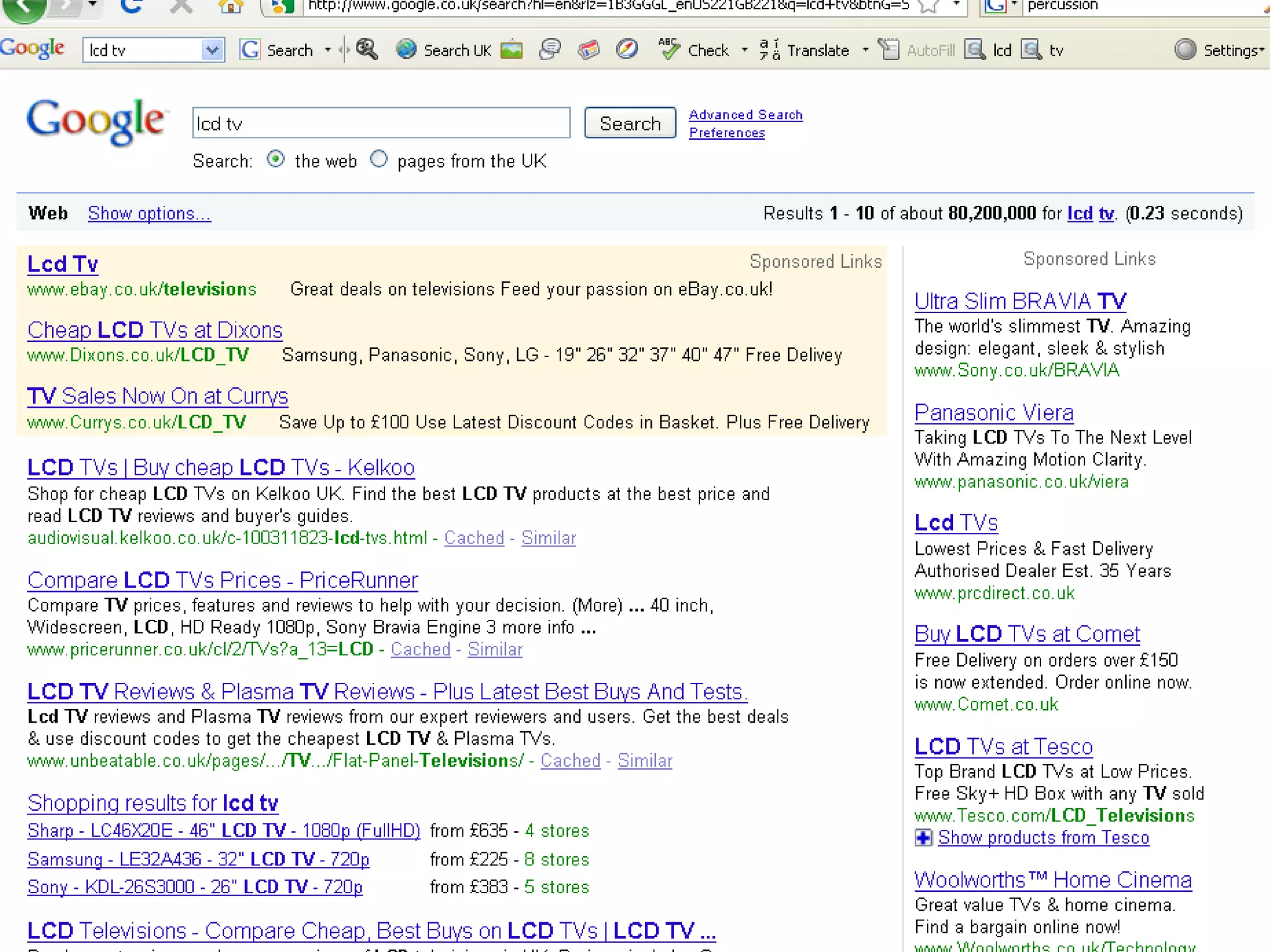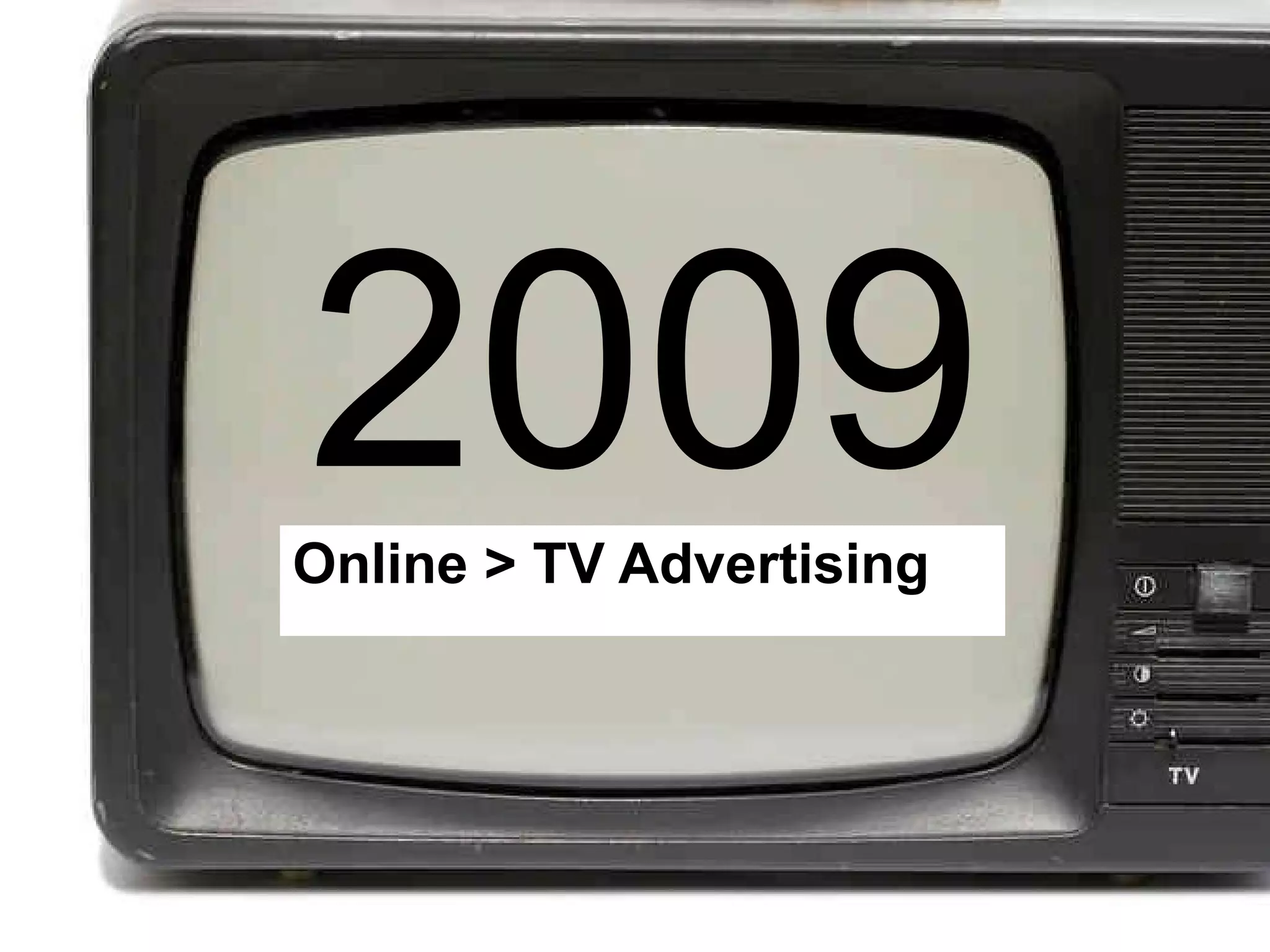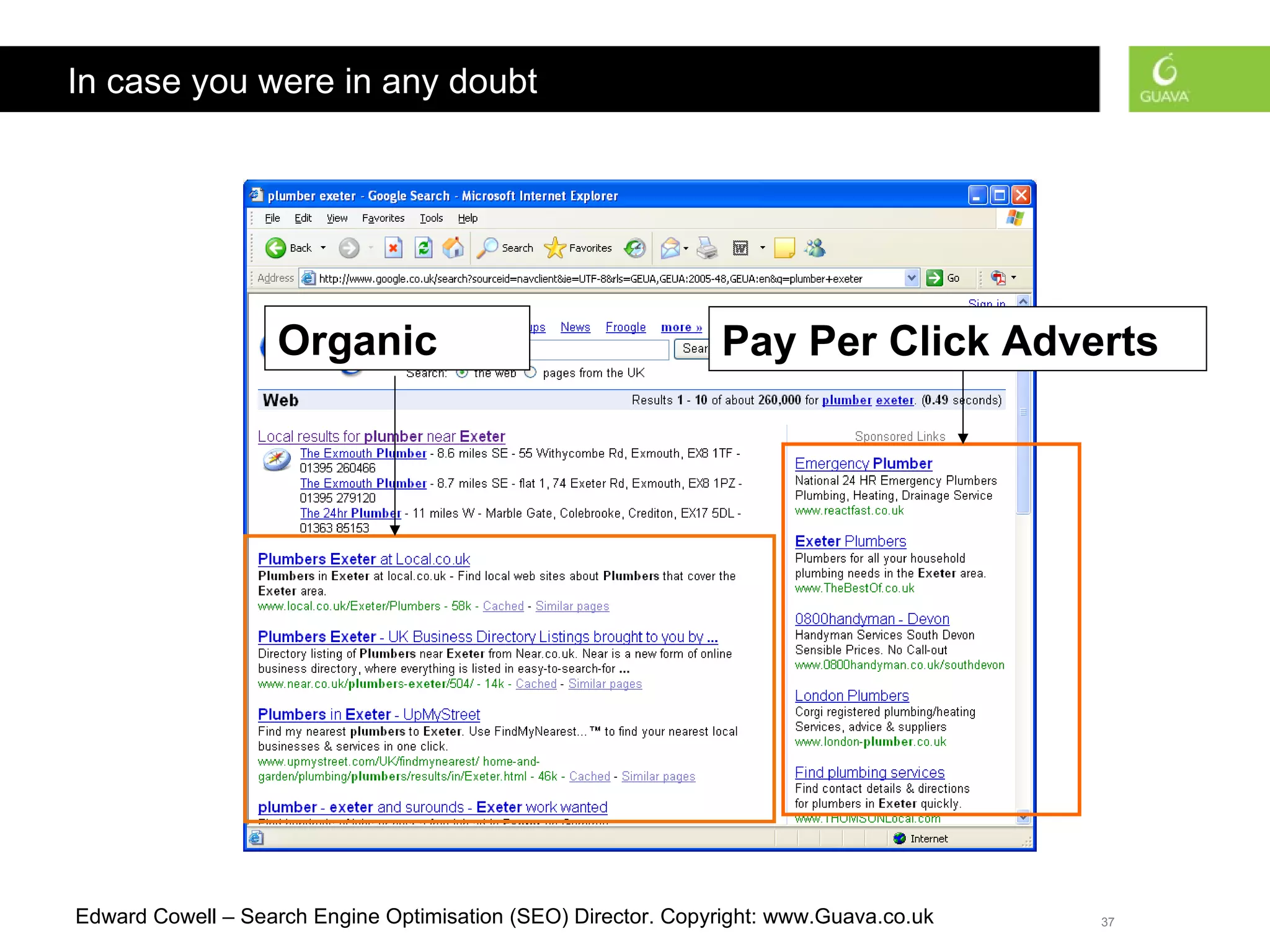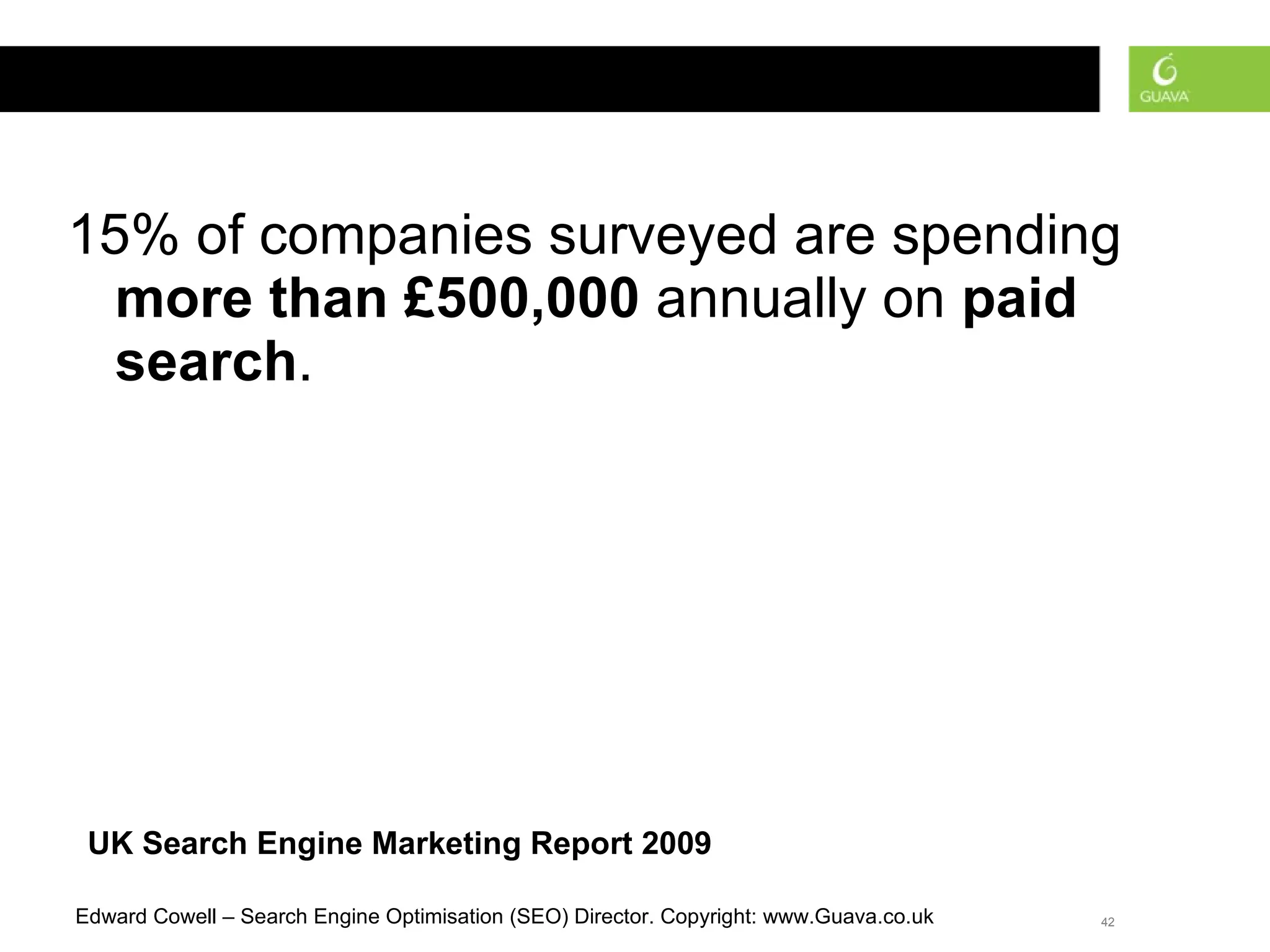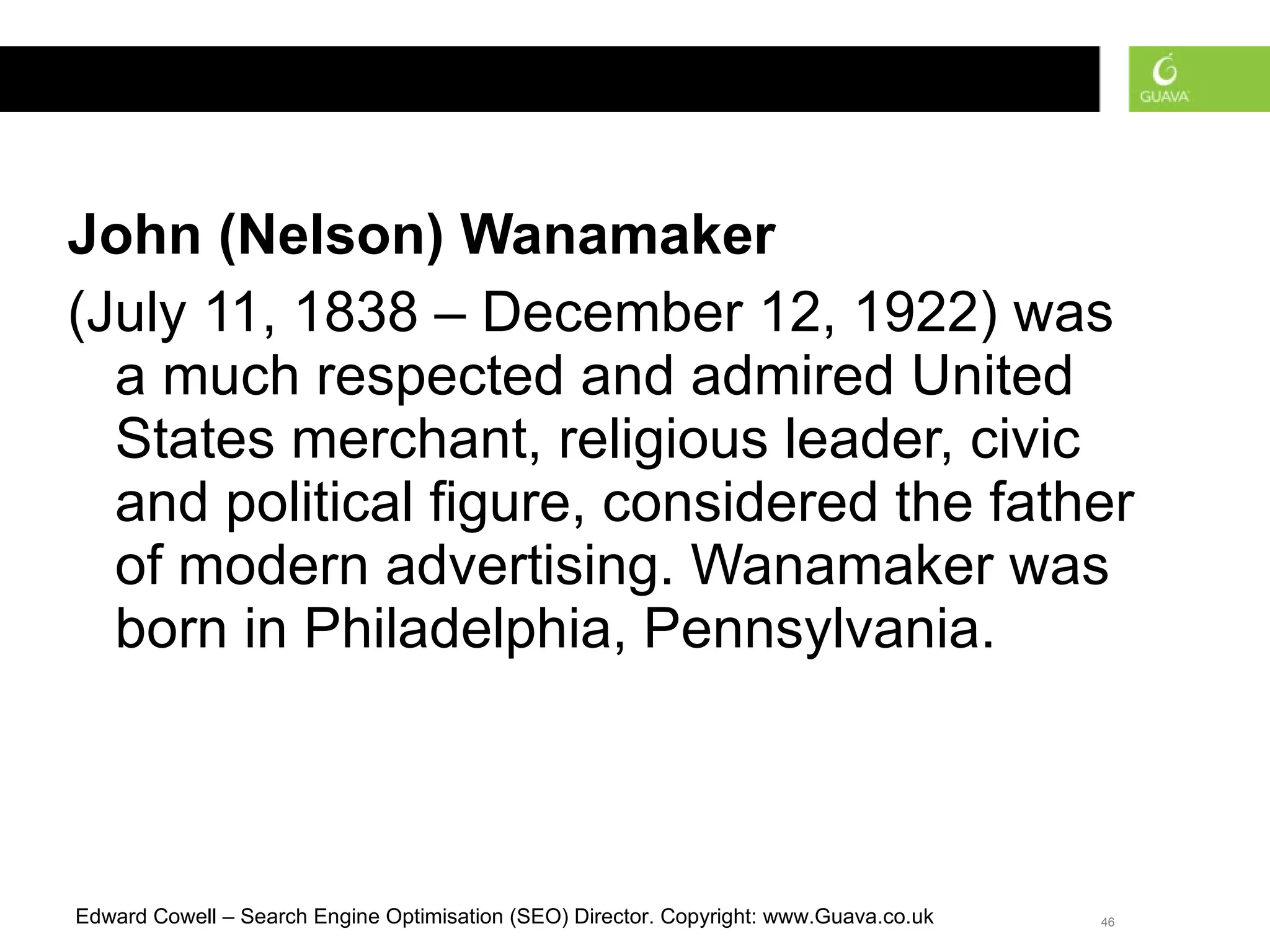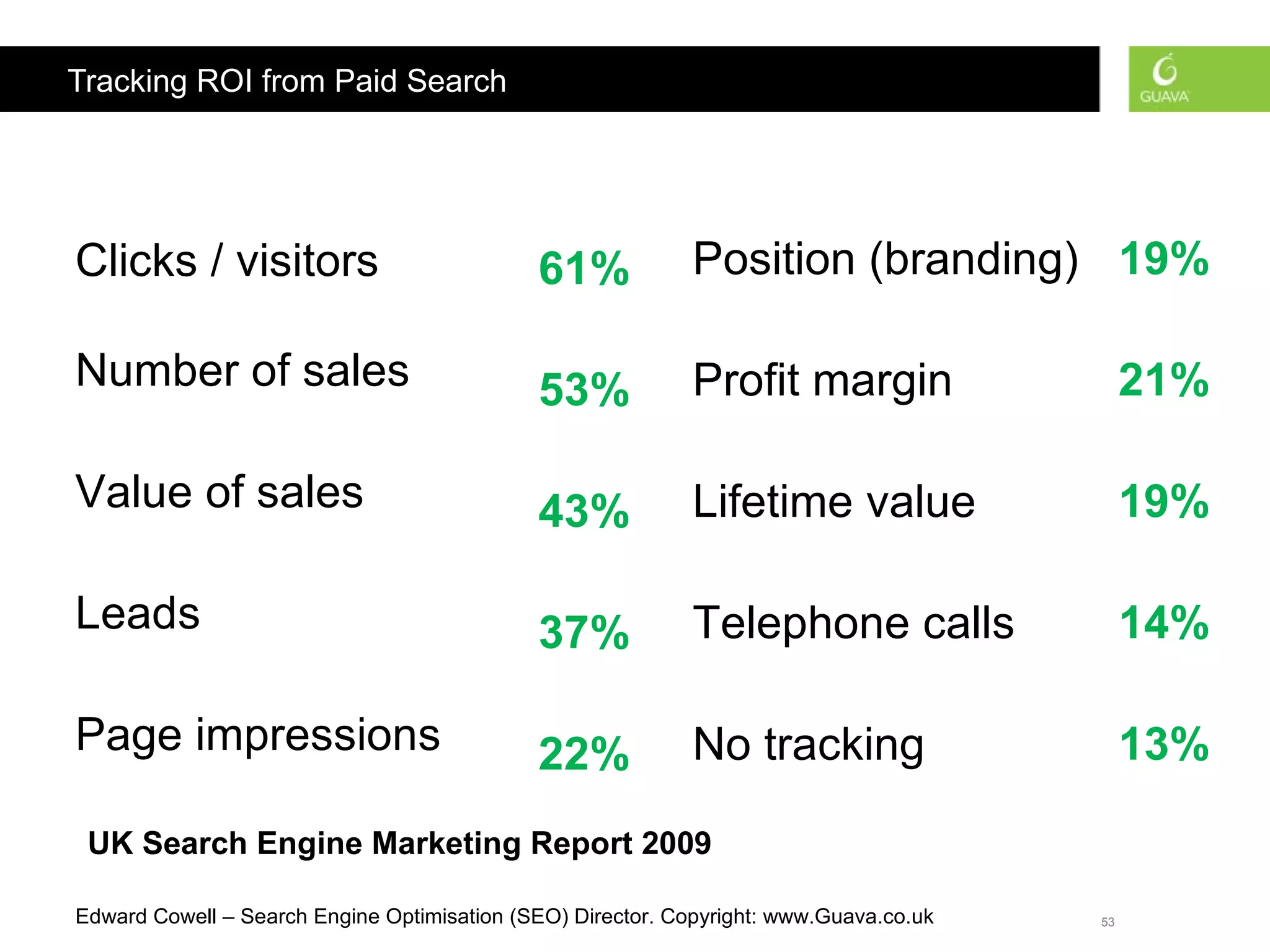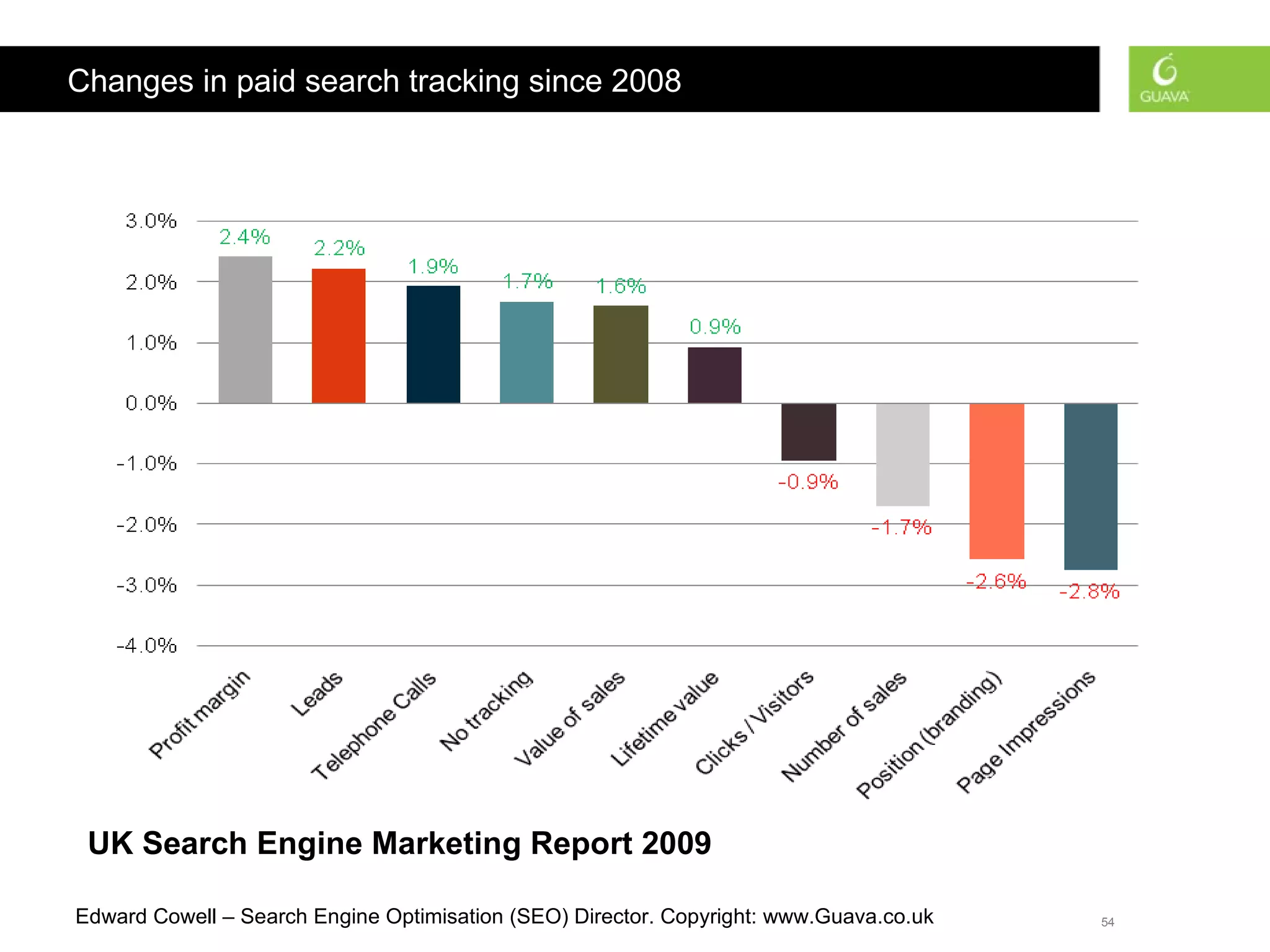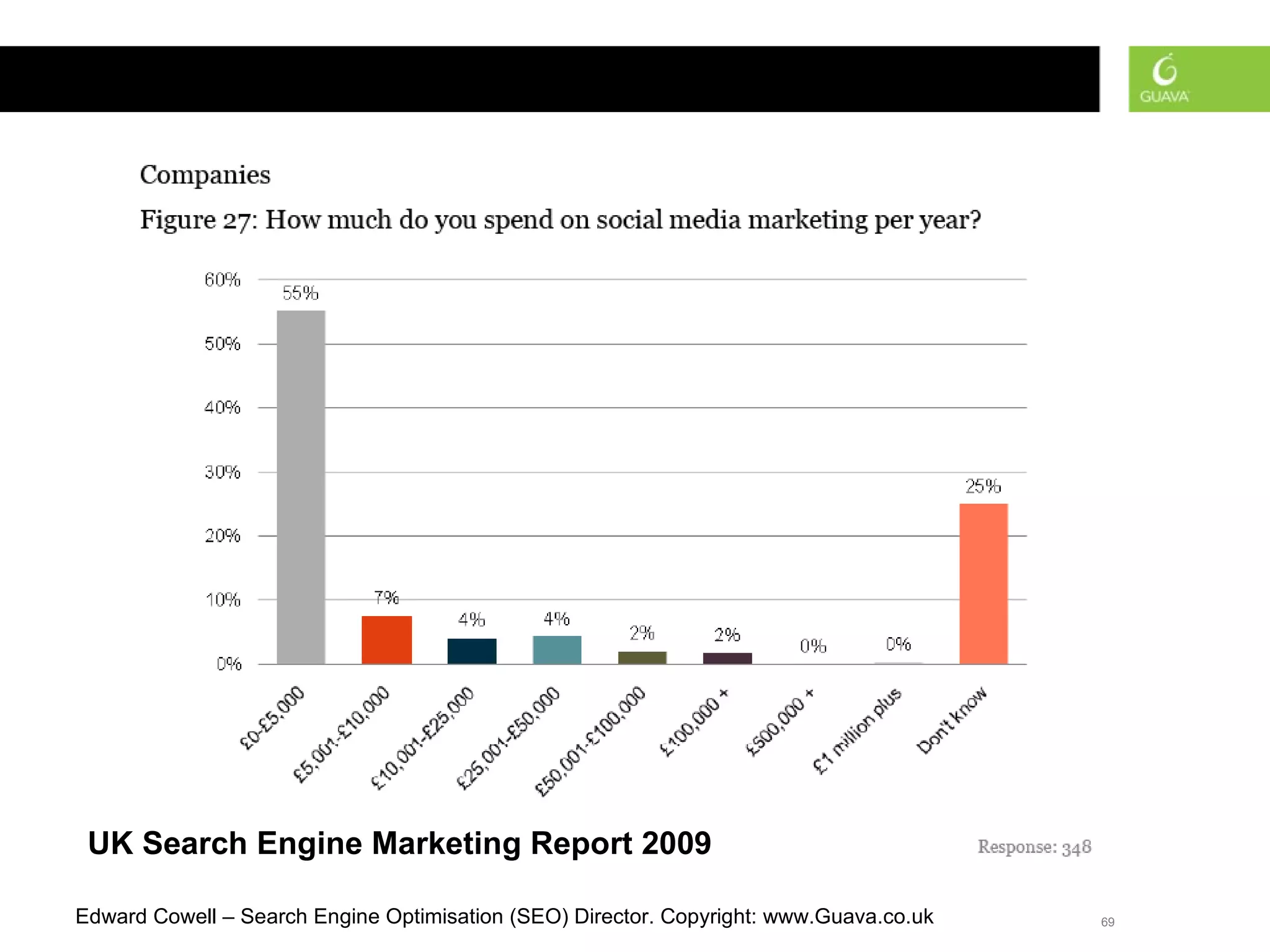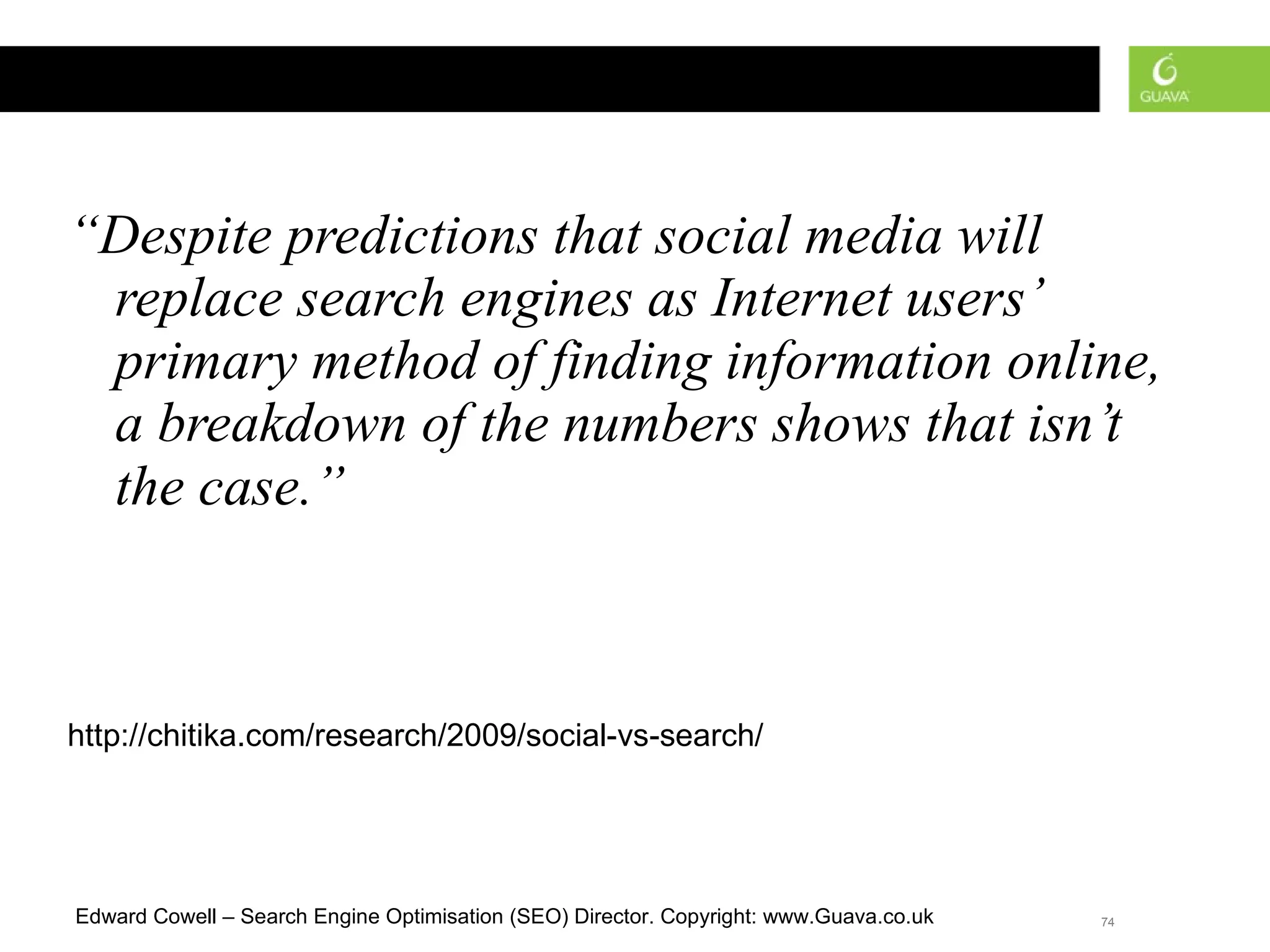This document discusses the growth of information on the internet and search engines. It notes that Google indexes over 50 billion items and processes over 100 billion searches per month. The document also discusses the rise of social media and how it is influencing search engine optimization and digital advertising. Measurement of returns on investment is becoming more important for search engine marketing and digital advertising strategies.









